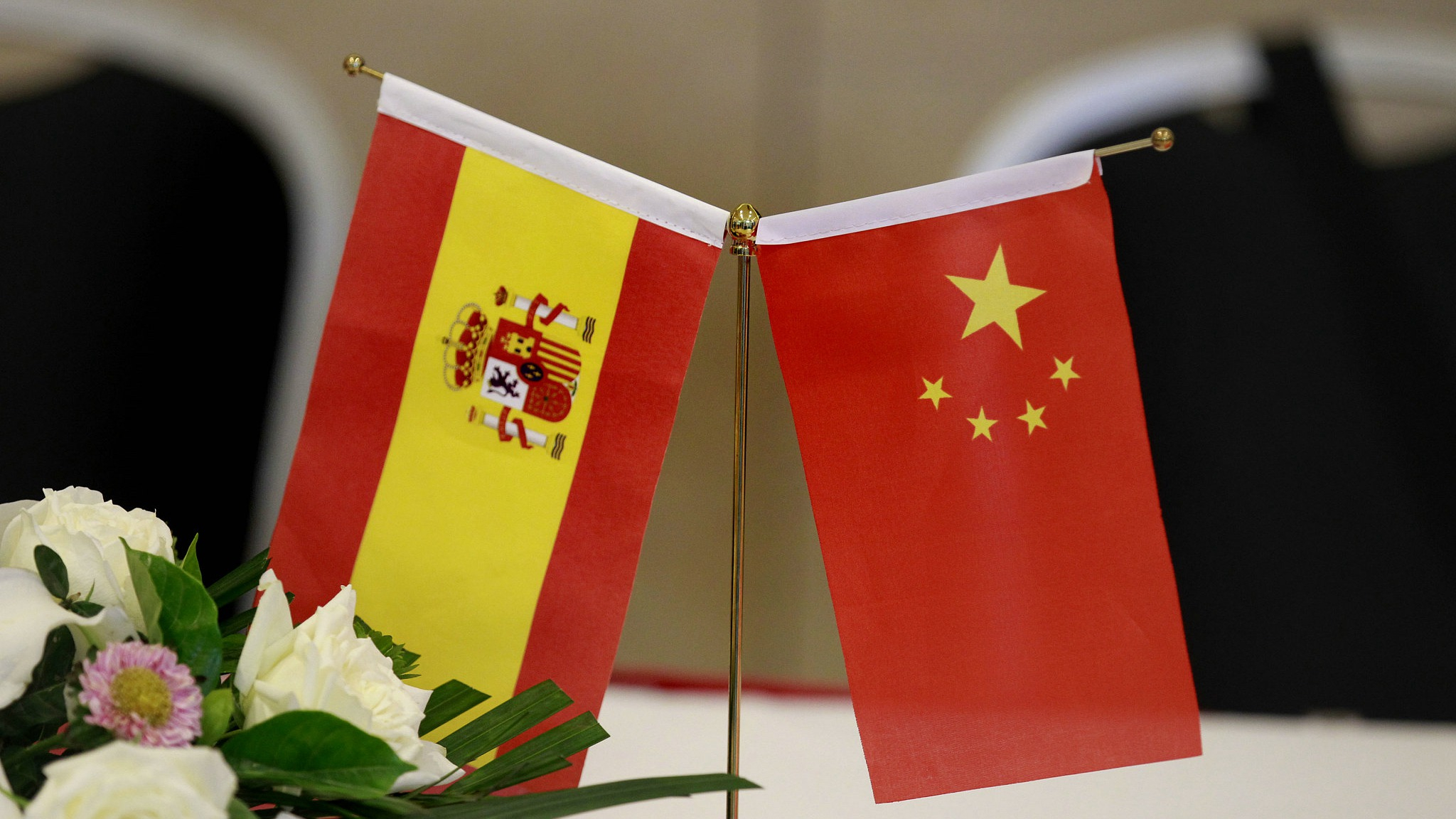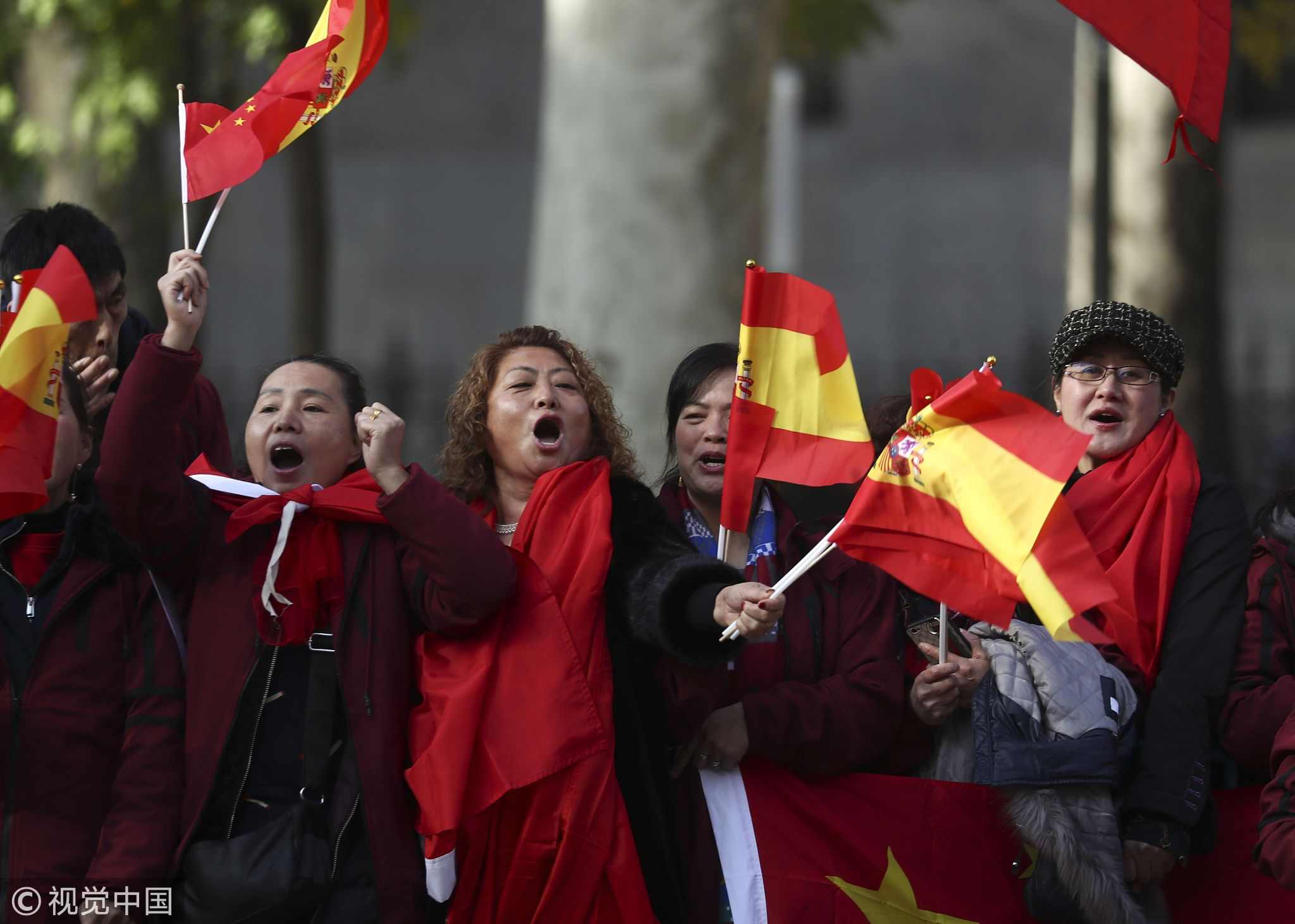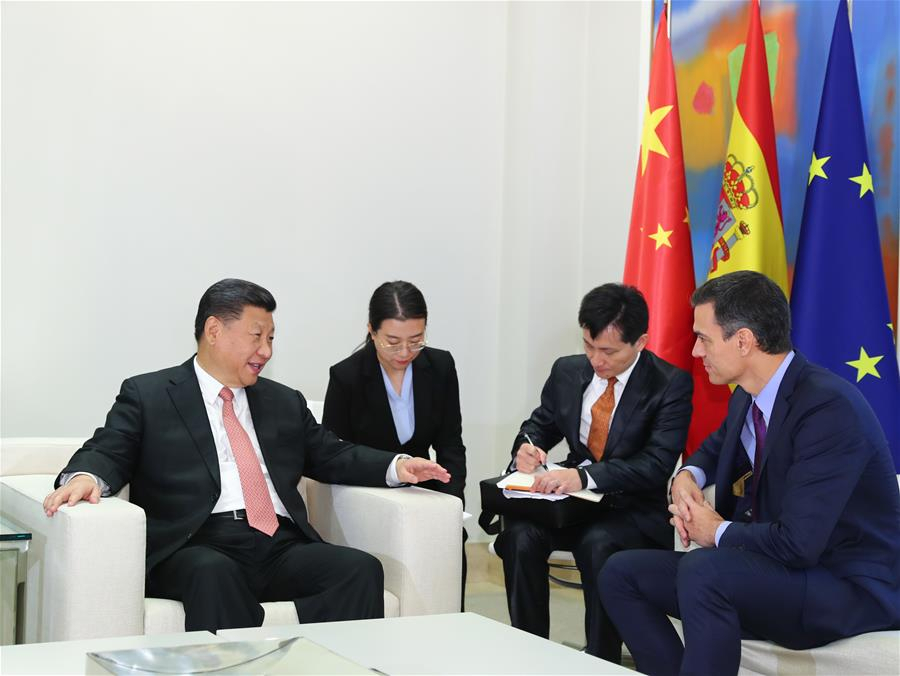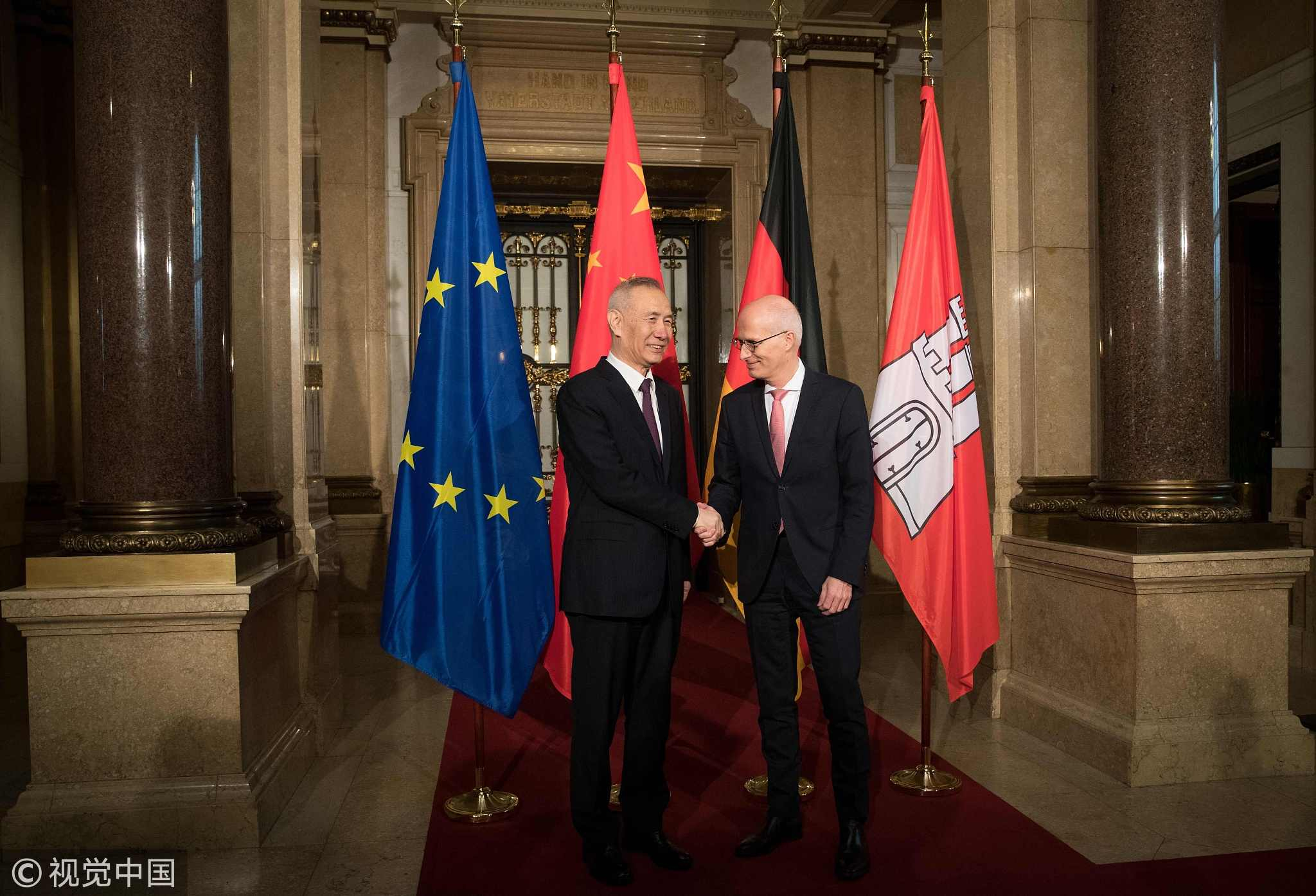
Opinions
23:13, 29-Nov-2018
Opinion: Xi's Spain visit opens new space for cooperation on BRI
Updated
22:17, 02-Dec-2018
By Hu Hong

Editor's note: Hu Hong is an assistant research fellow at the Department for European Studies at the China Institute of International Studies. The article reflects the author's opinion and not necessarily the views of CGTN.
From November 27 to 29, Chinese President Xi Jinping paid a state visit to Spain.
Upon his arrival, President Xi made it clear that the purpose of his visit was to deepen bilateral ties, cement traditional friendship, expand practical cooperation and achieve common development cooperation between the two countries.
President Xi said that these endeavors will no doubt be "in the interest of both countries and peoples", but also "conducive to world peace, stability, and prosperity."

Members of the Chinese community cheering for Chinese President Xi Jinping in Madrid, Spain, November 28, 2018. /VCG Photo
Members of the Chinese community cheering for Chinese President Xi Jinping in Madrid, Spain, November 28, 2018. /VCG Photo
Expansion of practical cooperation will bring the most tangible results to both countries and peoples.
Cooperation in the third-party market, service trade, taxation, and culture land high on the list of possible results. Both sides signed 18 cooperation agreements in these fields during Xi's visit.
Among these, co-building the Belt and Road Initiative (BRI) is the most prominent. The BRI is an innovative and comprehensive measure to connect projects of different areas and levels, and therefore, has its unique "cluster effect."
Though the BRI has entered its fifth year, much of its potential is still to be realized. "President Xi's visit will open up new space for co-building of the BRI," said Lyu Fan, China's ambassador to Spain.
Therefore, BRI has been one of the keywords throughout the visit, frequently mentioned by President Xi and echoed by his Spanish counterpart and officials. The conversations between the two sides revealed three-dimensional cooperation on the BRI.
Bilateral cooperation between China and Spain is the most direct way to further promote the BRI.
Like President Xi stressed during his meeting with Spanish Prime Minister Pedro Sanchez, "There are multiple advantages including historical and geographic factors for China and Spain to conduct cooperation on the BRI."

Chinese President Xi Jinping (L) meets with Spanish Prime Minister Pedro Sanchez (R) in Madrid, Spain, November 28, 2018. /Xinhua Photo
Chinese President Xi Jinping (L) meets with Spanish Prime Minister Pedro Sanchez (R) in Madrid, Spain, November 28, 2018. /Xinhua Photo
Historically, Spain has been a bridge between different cultures, and religions, which enables it to be a more active contributor to the BRI.
The BRI is also in line with Spain's "Strategic Vision for Spain in Asia" and the "Mediterranean Corridor," which allows both governments to forge cooperation ties at the highest level.
In Spain, sectors such as infrastructure, agriculture, new energy, and finance can reap great benefits from the BRI.
Since Spain is a member of the European Union (EU), further cooperation between China and the EU on the BRI will broaden the scope of cooperation and open more opportunities for Spain to embrace the BRI.
In the joint communiqué of the visit, both sides welcomed cooperation in connectivity and infrastructure building between China and the EU.
China and Spain are willing to promote synergy between the BRI and European infrastructure building plans, and the "Connecting Europe and Asia—Building blocks for an EU Strategy," helping Chinese and Spanish enterprises find more mutually beneficial opportunities for business and investment.
Both sides agreed that the BRI is an important scheme to promote global cooperation and are willing to fully realize the potential of connectivity platform, to strengthen the communication and cooperation in third-party markets.

Hamburg's mayor Peter Tschentscher (R) welcomes Chinese vice premier Liu He (L) at the city hall in Hamburg, Germany, November 27, 2018. /VCG Photo
Hamburg's mayor Peter Tschentscher (R) welcomes Chinese vice premier Liu He (L) at the city hall in Hamburg, Germany, November 27, 2018. /VCG Photo
Recently, cooperation in third-party markets has become a focal point in the cooperation between China and the EU. With their global influence in various regions such as northern Africa and Latin America, China and Spain can discover more opportunities within the BRI.
Divergence on the understanding of the BRI between China and Europe still exists and sometimes casts a shadow on practical cooperation. Some European officials and scholars tend to "politicize" the BRI and omit economic and development logic behind it.
However, just like Chinese vice premier Liu He said at the eighth Hamburg summit on November 27, China and the EU need to enhance mutual understanding for further cooperation at various levels.
Only with more cooperation and exchanges, can China, Spain and the rest of Europe fully realize the potential of the BRI and transform it into a practical and beneficial project.
(If you want to contribute and have specific expertise, contact us opinions@cgtn.com.)

SITEMAP
Copyright © 2018 CGTN. Beijing ICP prepared NO.16065310-3
Copyright © 2018 CGTN. Beijing ICP prepared NO.16065310-3